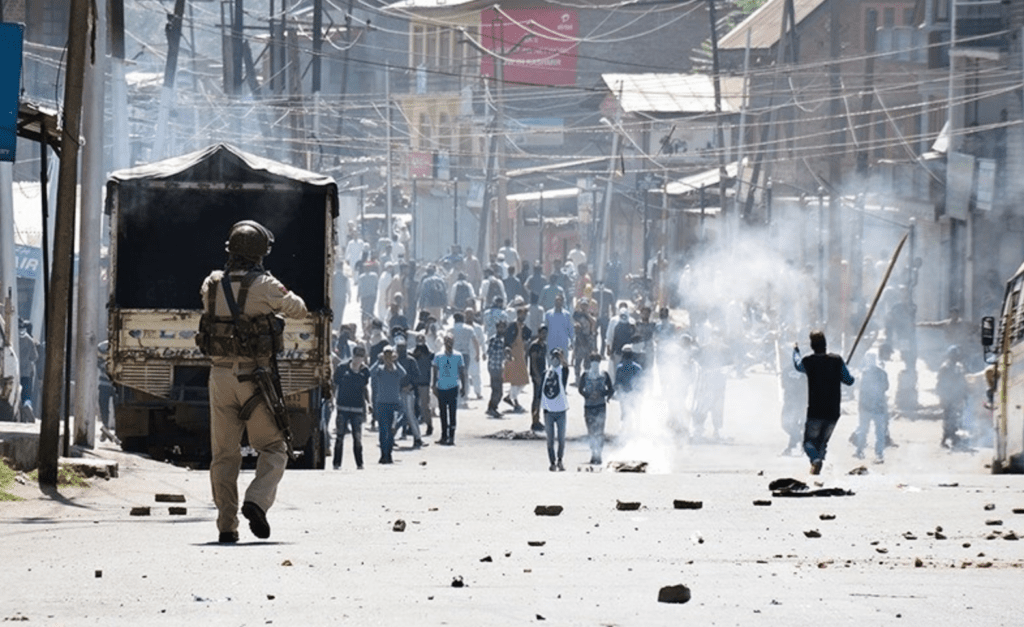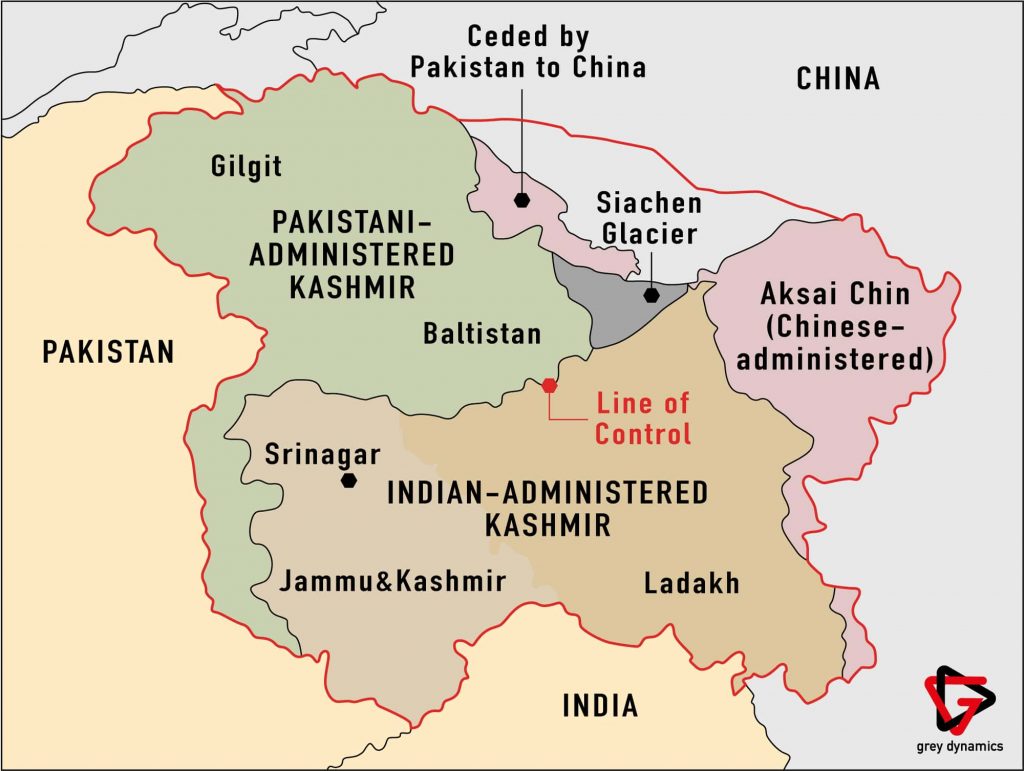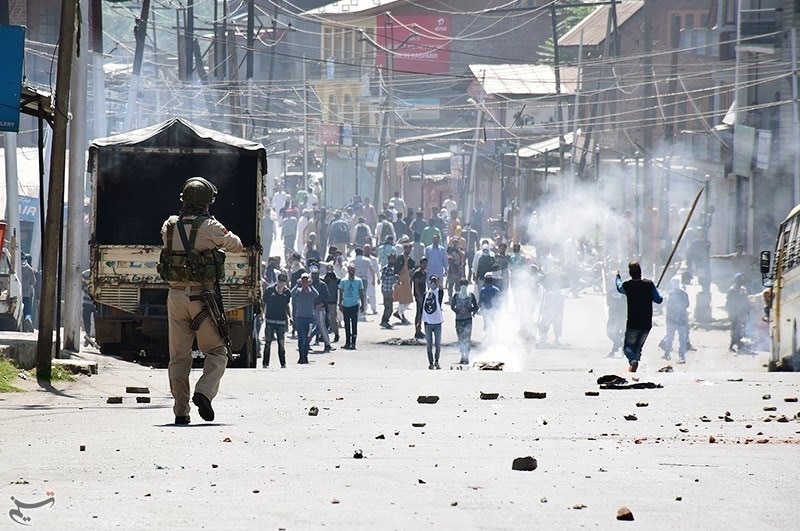
Summary
The Kashmir dispute is one of the longest-running territorial conflicts in the South Asian continent. Since the partition of the Indian subcontinent in 1947, India and Pakistan have fought over the Kashmir territory for 74 years without solving the dispute. During these years, Kashmir witnessed three Indo-Pakistani wars and five insurgencies. The Indo-Pakistani conflict began as a religious dispute for legitimacy as most of the population was Muslim and Maharaja Hari Singh, the ruler of Kashmir, was a Hindu. Today, Kashmir is landlocked. China, India, and Pakistan possess respectively 15%, 55%, and 30% of the region (Figure 1). However, Kashmir’s territorial division is likely to change in the next 12 months.
In addition, India and Pakistan exposed the Kashmiri people to conflicts, human rights abuses, and violence during these 74 years of war. For instance, in October 2019, the Indian government revoked the semi-autonomy of Jammu and Kashmir, hence violating Article 370 of the Indian Constitution. The constant wars and violations of Kashmiri human rights threaten the possibility of obtaining territorial independence from India and Pakistan. As a result, it is unlikely that India and Pakistan will give up the right of territorial legitimacy over Kashmir in the next 12 months.

Key Judgement 1
Neither India nor Pakistan will surrender Kashmir in the next 12 months.
- Pakistan claims the region’s legitimacy due to the Muslim majority. While, India claims that Kashmir is an Indian region as Kashmiri people voted to join India in 1947.
- Unsurprisingly, India won the election thanks to the Hindu influence of Maharaja Singh.
- In addition, Kashmir is rich in natural resources (i.e., land, mineral, and water). Within these resources, water is fundamental for both India and Pakistan.
- China is threatening to divert waters from India and Pakistan, which will create a shortage of water supplies. In case of water diversion, Pakistan will likely have water shortages by 2025 and India by 2050.
- Cooperation is unlikely to happen because India and Pakistan cannot agree on basic principles of Kashmir, such as whether international law applies in Kashmir or borders are appropriately demacated.
- UN Peacekeeping missions and ceasefires failed to resolve the Kashmir conflict.
Key Judgement 2
India and Pakistan will likely pose a nuclear threat to Kashmir and the international community in the next 12 months.
- Nuclear assets of India and Pakistan concern the international community. Indeed, in case of conventional war failure, an Indo-Pakistani nuclear war could occur on the line of control between the two nations.
- Nonetheless, India will not be the first to use nuclear weapons. In 2020, India officially adhered to a no-first-use (NFU) nuclear weapons policy. On the contrary, Pakistan disagreed with such terms.
- The February 2019 crisis did have all the characteristics to spark a nuclear war. The clashes between 12 Indian Air Force (IAF) Mirage-2000 and 3 Pakistani F-16 combat aircrafts set the ground for the beginning of a nuclear war. However, both India and Pakistan, despite the threats, avoided escalation of the matter.
Key Judgement 3
It is likely that Kashmir will face terrorist threats to replace the line of control (LoC) between India and Pakistan in the next 12 months.
- Since 1947, India and Pakistan have fought 74 years along the Line of Control (LoC) in Kashmir. In 1972, India and Pakistan signed the LoC through the Shimla Agreement.
- The LoC’s stability could be threatened by terrorist attacks launched by militant groups from Pakistan. The Lashkar-e-Taiba and the Jaish-e-Mohammed are known for terrorist attacks conducted in the Kashmir region.
- The Siachen Glacier is one of the most contested zones in Kashmir after Jammu and Kashmir. However, India and Pakistan are unlikely to carry out military operations in Siachen Glacier by 2024 due to the harsh climate.

